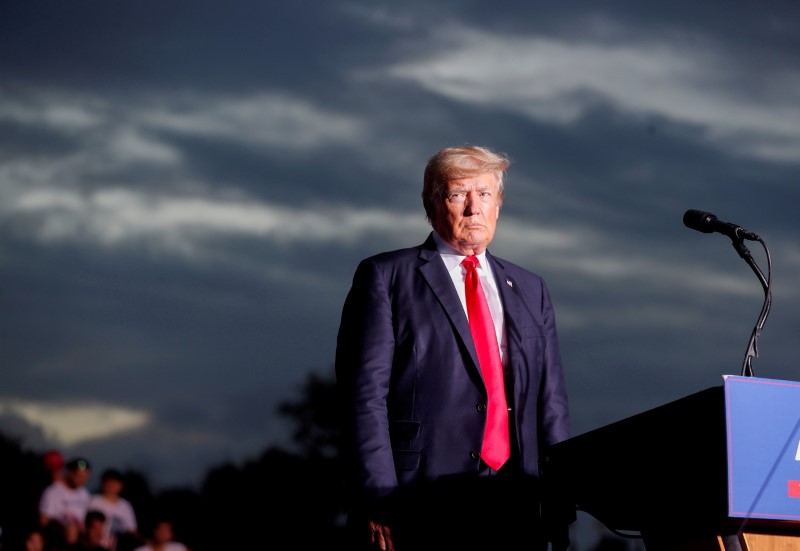By Jan Wolfe
(Reuters) -A U.S. judge on Wednesday ordered Donald Trump's accounting firm Mazars to turn over some of the former president's financial records to a U.S. House of Representatives committee but not all of the documents sought by the congressional panel.
The ruling by U.S. District Judge Amit Mehta came in a long-running lawsuit brought by the Democratic-controlled House Oversight Committee, which first issued a subpoena for Trump's financial records in 2019.
Mehta said Mazars should turn over documents relating to Trump's hotel in Washington, D.C., saying the committee proved that it needed them to evaluate potential legislation and conduct government oversight.
But the judge did not allow House investigators to see disclosure forms Trump submitted to the government that outlined his assets and liabilities.
Mehta said he was "left wondering about the necessity (or even unique usefulness) of President Trump’s personal papers."
The lawsuit is back in Mehta's courtroom after a trip to the U.S. Supreme Court. In a July 2020 decision, the high court said Mehta needed to redo his legal analysis.
In that 7-2 decision, the justices said that in Mehta's courtroom House Democrats needed to further explain their need for the records, and that Mehta should weigh that stated justification against the burdens placed on Trump by complying with the subpoena.
Unlike other recent presidents, Trump refused to release his tax returns and other documents that could provide details on his wealth and the activities of his family company, the Trump Organization.
Manhattan District Attorney Cyrus Vance Jr. has separately obtained Trump’s tax returns, but that does not mean the public will see them.
The records were obtained in connection with a grand jury investigation, and New York law requires that grand jury materials be kept confidential.

In a statement, House Oversight Committee Chairwoman Carolyn Maloney said she was pleased the court recognizes the panel is "entitled to a broad set of President Trump’s financial records as part of our critical investigation aimed at preventing presidential conflicts of interest, self-dealing, and constitutional violations."
She added that she is also disappointed the ruling "narrowed the subpoena" in some respects and said the panel is "actively considering next steps."